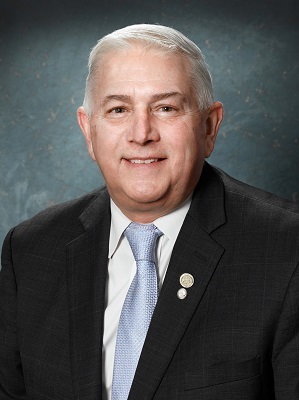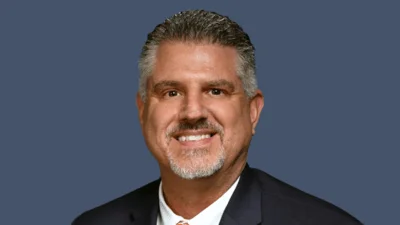DTE and Consumers Energy customers will be transitioning to more renewable resources to power much of Michigan by 2022, causing worry in a population already struggling through summer power outages.
The two energy companies will be focusing their resources on cultivating more power from wind turbines, solar power and neighboring states and Canada in the event that energy demands cannot be met.
The push for renewable sources of energy to replace at least a portion of fossil fuels will have an effect on the state of Michigan as energy companies transition to a cleaner, more-consistent form of energy. The companies will be offering customers the chance to work together to limit their usage with voluntary programs that can help conserve energy and save money.

Michigan Sen. Ken Horn (R-Frankenmuth)
| Sen. Ken Horn
Storms broke out across the state over the summer that put many homes and business out of power, but both energy companies worked to restore power and assisted costumers with credits for the lack of energy.
"We've had power outages for as long as we've had power," state Sen. Ken Horn (R-Frankenmuth) said. "We’ve spent billions of dollars on reliability making sure trees are trimmed properly, making sure they're not tipping over into power lines and causing outages."
Other measures have been taken to reduce the likelihood of power outages across the state, Horn said. Among these are smart meters that can help locate exactly where outages are happening in personal homes and neighborhoods.
Horn said while the conversion from coal to renewable resources is happening, they only comprise about 15 percent of the overall power source. Most of the power in Michigan is converted from fossil fuels.
"Natural gas is cheap right now, cheaper than coal," Horn said. "With the conversion from coal to natural gas, that’s the real bottom line."
There are also ways to save consumers more on their bottom lines, such as the voluntary programs that can help consumers conserve energy in their own homes. These include limiting the amount of time your air conditioner is running, particularly when you're not home, and washing clothes and dishes during times that are low-energy usage hours.
"Peak times are usually in the afternoons when it’s the hottest and people are just coming home from work," Horn said. "In the summertime, air conditioners are all turned on right around the same time and factories are still running. So these are the peak times, and that becomes very clear when you look at the meters."
As for reliability in the changes that are being made, Horn said renewables only make up a portion of the total energy portfolio and fossil fuels will maintain a foothold in energy production into the future.
"The problem with renewables is that not every community wants wind turbines, and that’s the cheapest form of renewable energy, the most-common renewable energy," Horn said. "The public appetite for having these big turbines in your back yard is about maxed out."
A possible remedy for both public satisfaction and the pitfalls of wind turbines could be solar technology. With solar technology becoming more affordable, a reliance on it could be a palatable fix for communities that are tired of seeing turbines out of their kitchen windows - as long as it's managed for efficiency. By investing in larger industrial-sized solar arrays, Horn said there can be more control over its usage and a better determination of its efficiency.
"You manage that in your peak times in the summertime when it’s the hottest and the sun is shining and the turbines are sitting still, you can balance that out better," Horn said. "Over the course of the last two energy laws being passed in 2008 and 2016 when we had major reforms, a big part of it focused on reliability."
With a 95 percent local clearing rate on energy production - meaning that 95 percent of energy for Michigan has to be produced within the state - the focus on renewable resources as forms of energy will continue to be researched. However for now, Horn said the state will still depend heavily on transmission of natural gas and coal.


 Alerts Sign-up
Alerts Sign-up